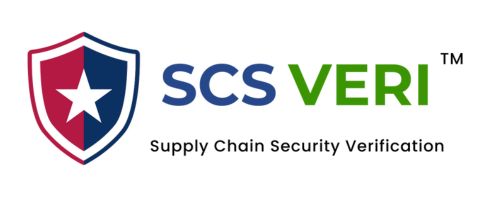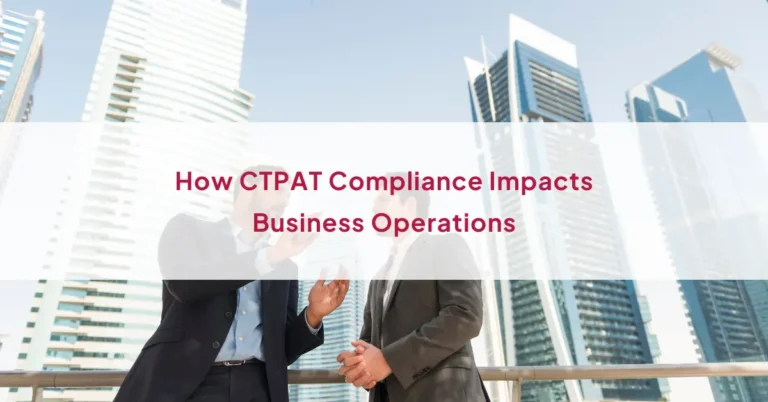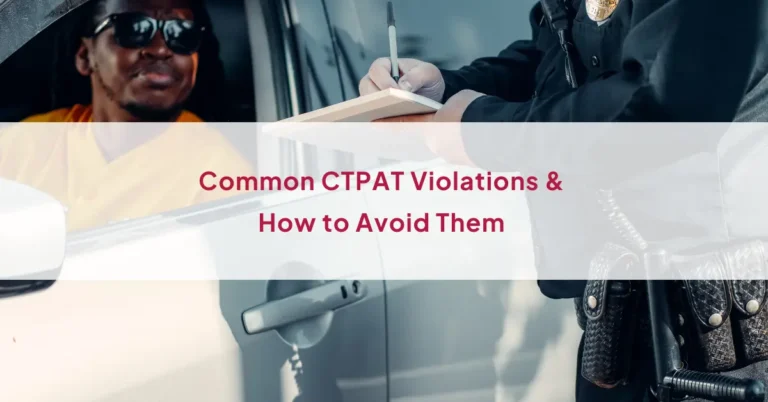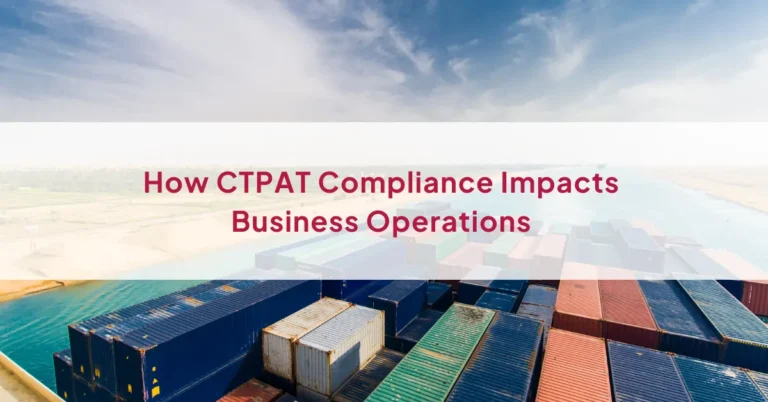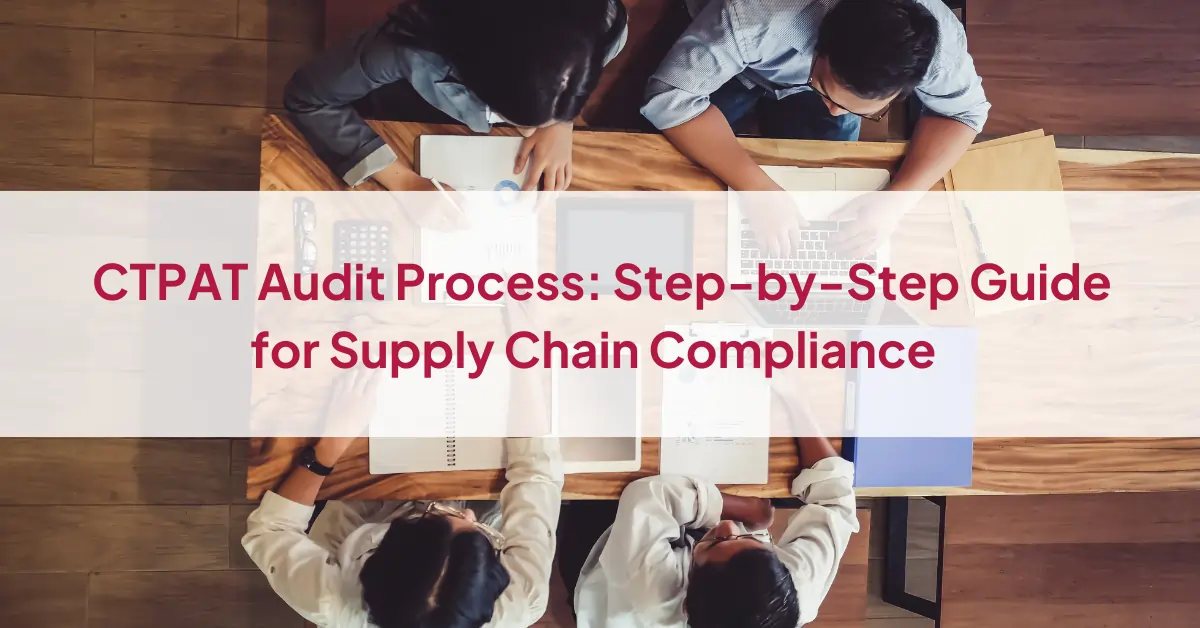
Global supply chain security has never been more critical. For businesses exporting to the United States, aligning with the Customs-Trade Partnership Against Terrorism (CTPAT) program brings major benefits—including reduced customs delays, improved credibility, and greater operational resilience.
But how can you assess if your supply chain meets the expectations of CTPAT-participating U.S. importers?
This is where a third-party CTPAT audit plays a vital role.
In this guide, we walk you through the CTPAT audit process—from planning to reporting—explaining how a third-party inspection firm supports your compliance journey, without acting as a consultant or certifier.
What Is a CTPAT Audit?
A CTPAT audit is an independent evaluation of your supply chain security practices, measured against the Minimum Security Criteria (MSC) set by U.S. Customs and Border Protection (CBP).
While CBP manages CTPAT membership and validations, companies often request third-party audits to evaluate:
– How well they align with CTPAT principles
– Where improvements may be needed
– How to prepare for U.S. buyer audits or CBP validations
Important:
CTPAT is not a certification; it’s a voluntary compliance initiative. Audits are conducted to verify adherence—not to issue any certificate.
Step-by-Step: The CTPAT Audit Process
Step 1: Scope Definition & Audit Planning
Step 2: Documentation Review
Step 3: On-Site or Remote Facility Audit
Step 4: Gap Identification
Step 5: Reporting & Optional Follow-Up
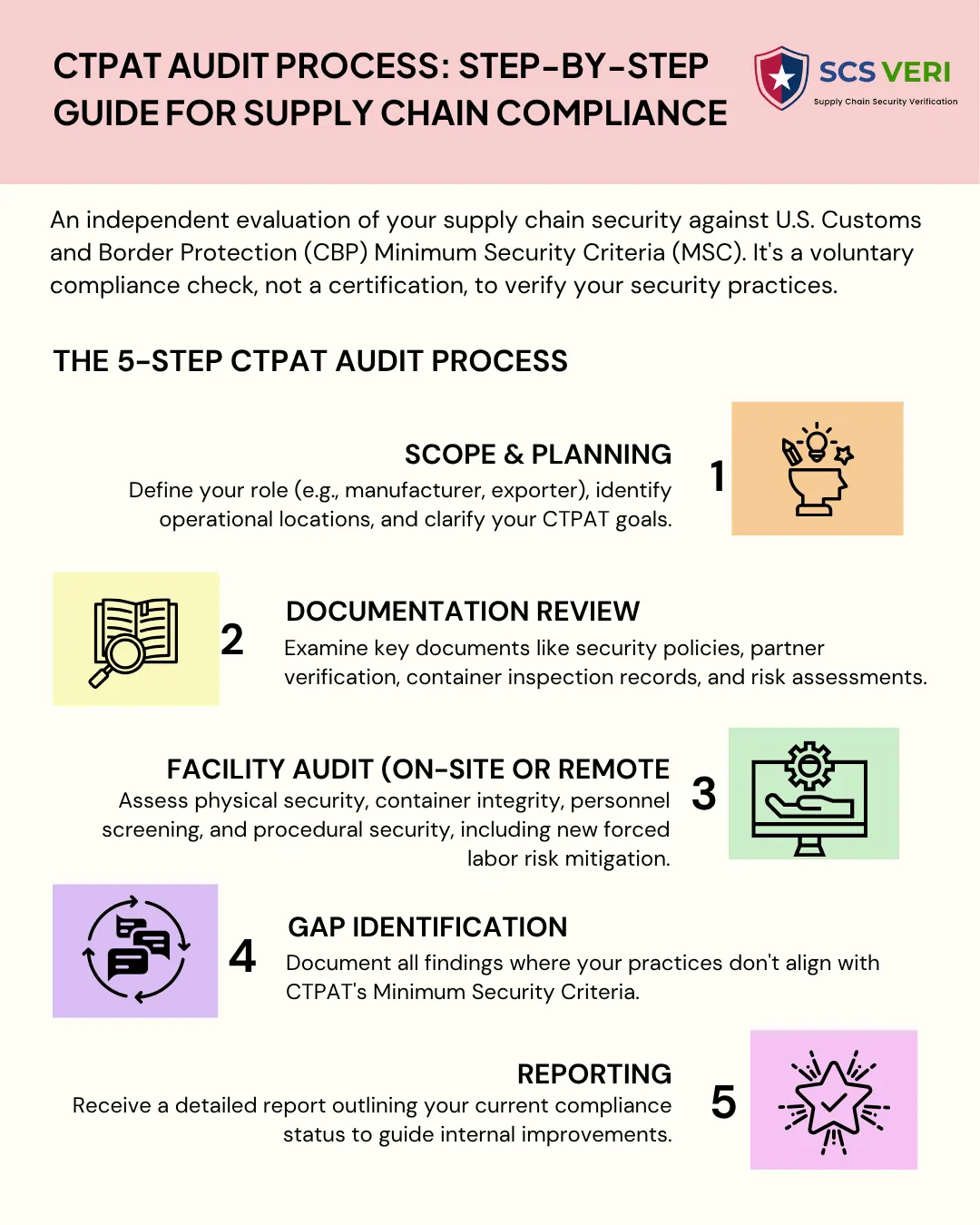
Who Needs a CTPAT Audit?
If your U.S. buyers are CTPAT members, they may request audits to ensure you meet MSC expectations. A third-party audit shows your commitment to secure and ethical sourcing—a major competitive advantage.
Frequently Asked Questions (FAQ)
No. CTPAT is not a certification program. Third-party audits help verify compliance but do not issue certificates.
No. As a third-party audit company, we only identify and report gaps objectively. Implementation of improvements is managed by your internal teams or designated advisors.
Many suppliers conduct internal or third-party audits annually or before major client reviews or CBP validations.
Yes. We include a review of forced labor prevention measures, in line with updated MSC requirements.
Final Thoughts
A CTPAT audit isn’t just about meeting U.S. trade expectations—it’s about protecting your operations, enhancing trust, and creating a resilient supply chain.
At RSJ Inspection, we support businesses across Asia with independent, professional CTPAT audits that help you understand where you stand—without providing consultancy or overstepping compliance boundaries.
Ready to evaluate your supply chain security?
Contact RSJ Inspection to schedule your independent CTPAT audit across India, China, Vietnam, Bangladesh, or Pakistan.
